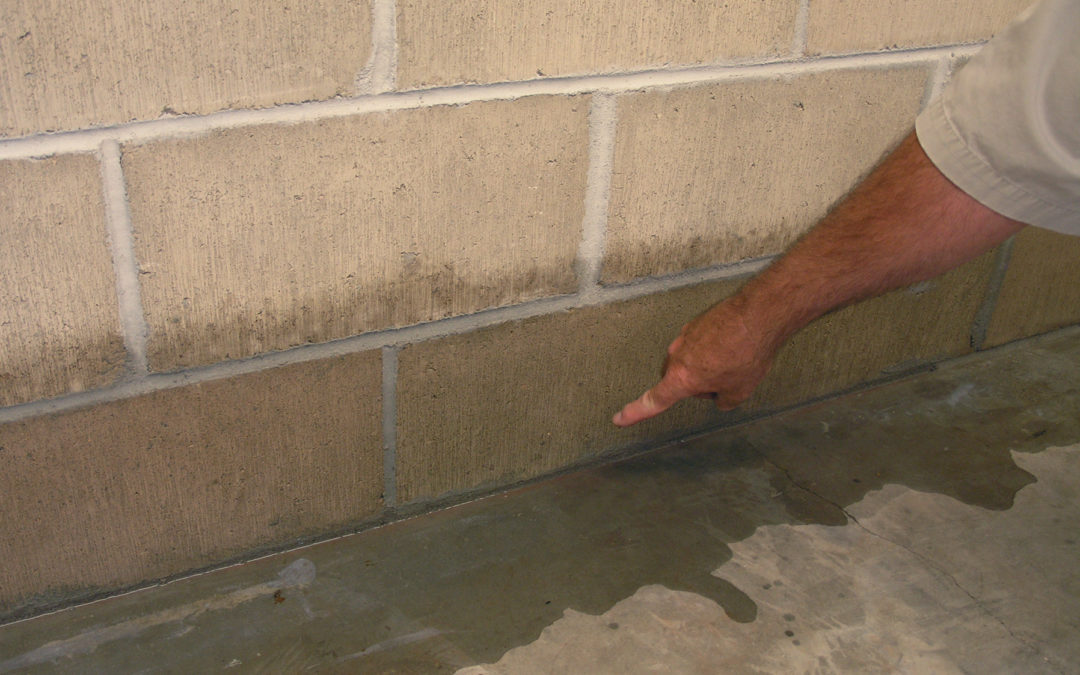
15 Oct Why Do My Basement Walls Leak When It Rains?
Have you ever wondered why your basement walls leak when it rains and betray their primary purpose? The phenomenon of leaking basements during rainfall is a common predicament that homeowners face. Understanding the reasons behind this unwelcome water intrusion is crucial for prevention and effective mitigation.
This article will delve into the key factors contributing to why basement walls leak when it rains, shedding light on everything from cracks in the foundation to the significance of proper drainage systems.
5 Reasons Why Basement Walls Leak When It Rains:
1. Basement Cracks
One of the primary reasons basement walls leak when it rains is the presence of cracks. Over time, concrete foundations can develop small or large cracks due to various factors, including the settling of the house, soil movement, temperature fluctuations, or simply the aging process. These cracks allow water to infiltrate easily, especially during rainfall. Even seemingly minor cracks can compromise the integrity of your basement walls, allowing water to penetrate and create a damp environment.
To address this issue, homeowners should regularly inspect their basement walls for any signs of cracks and promptly address them. Sealing these cracks with an appropriate waterproofing material can significantly lower the risk of water infiltration during rainy seasons.

2. Build Up of Water Pressure
Another factor contributing to basement leaks is the build-up of water pressure around the foundation. During heavy rainfall or melting snow, the soil surrounding your home becomes saturated with water. As the soil absorbs moisture, it exerts increased pressure against the basement walls. Over time, this continuous pressure can force water through any existing cracks or vulnerabilities in the foundation.
Installing a proper drainage system, such as a sump pump and sump pits, can help alleviate this pressure by redirecting water away from the foundation. This proactive measure can effectively prevent basement leaks during rainy periods.

3. Clogged Drains
Basement leaks can also result from the malfunction of footing drains. These drains are installed around the perimeter of the foundation to redirect water away from the basement. They aim to alleviate water pressure and prevent it from accumulating against the basement walls. However, if these drains become clogged or damaged, their efficiency is compromised, leading to potential leaks during rainfall.
Footing drains can become clogged over time due to various factors. The accumulation of silt, debris, or roots from nearby trees can obstruct water flow. In some cases, the drains may deteriorate, rendering them ineffective. Regular inspection and maintenance of footing drains are essential to ensure they remain free from blockages and function optimally, thereby preventing the risk of basement leaks when it rains.

4. Ineffective Grading and Landscape
The significance of effective grading and landscape cannot be overstated when safeguarding your home against basement leaks. To simplify, think of the area around your home as a battlefield and grading as your defense strategy. If the slope guides water toward your home instead of away, it gives an advantage to water infiltration. Good grading ensures water moves out, stopping it from gathering around your basement walls when it rains heavily.
5. Window Wells
Improperly installed or maintained window wells can also contribute to basement leaks when it rains. Window wells allow natural light into basement spaces while keeping water away. However, if these wells are not correctly installed or lack proper maintenance, they can become avenues for water leaks, especially during heavy rains.
Regularly checking and cleaning window wells is essential to prevent water from seeping into your basement through these openings. Installing window well covers can also provide additional protection, keeping rainwater out while allowing light to filter through.

Proactive Measures To Prevent Leaks
Taking proactive measures is the key to ensuring a dry and secure home. Begin with simple yet effective regular checks and maintenance. Regular inspections should include identifying cracks, ensuring drainage systems are unobstructed, and promptly addressing any issues. These routine checks act as an early warning system, allowing you to address vulnerabilities before they escalate into more significant and costly problems.
However, for a more in-depth and comprehensive home assessment, you may want to consider professional inspections by our team at Aquaguard. Beyond merely identifying and understanding why basement walls leak when it rains, we also provide expert advice on preventive measures and appropriate solutions tailored to the specific needs of your home. This personalized approach ensures you receive recommendations addressing your unique water quality concerns, providing precision and effectiveness that standard solutions may fail to achieve.
End Note
Since you have discovered why basement walls leak when it rains, taking proactive measures is crucial for a dry and secure home. From addressing cracks and managing water pressure to ensuring unobstructed drainage and proper grading, emphasize the importance of regular checks and maintenance and promptly address issues before they escalate.
Take the next step towards a watertight home. Contact Aquaguard today to schedule a professional inspection and fortify your home against potential water-related issues.



Sorry, the comment form is closed at this time.